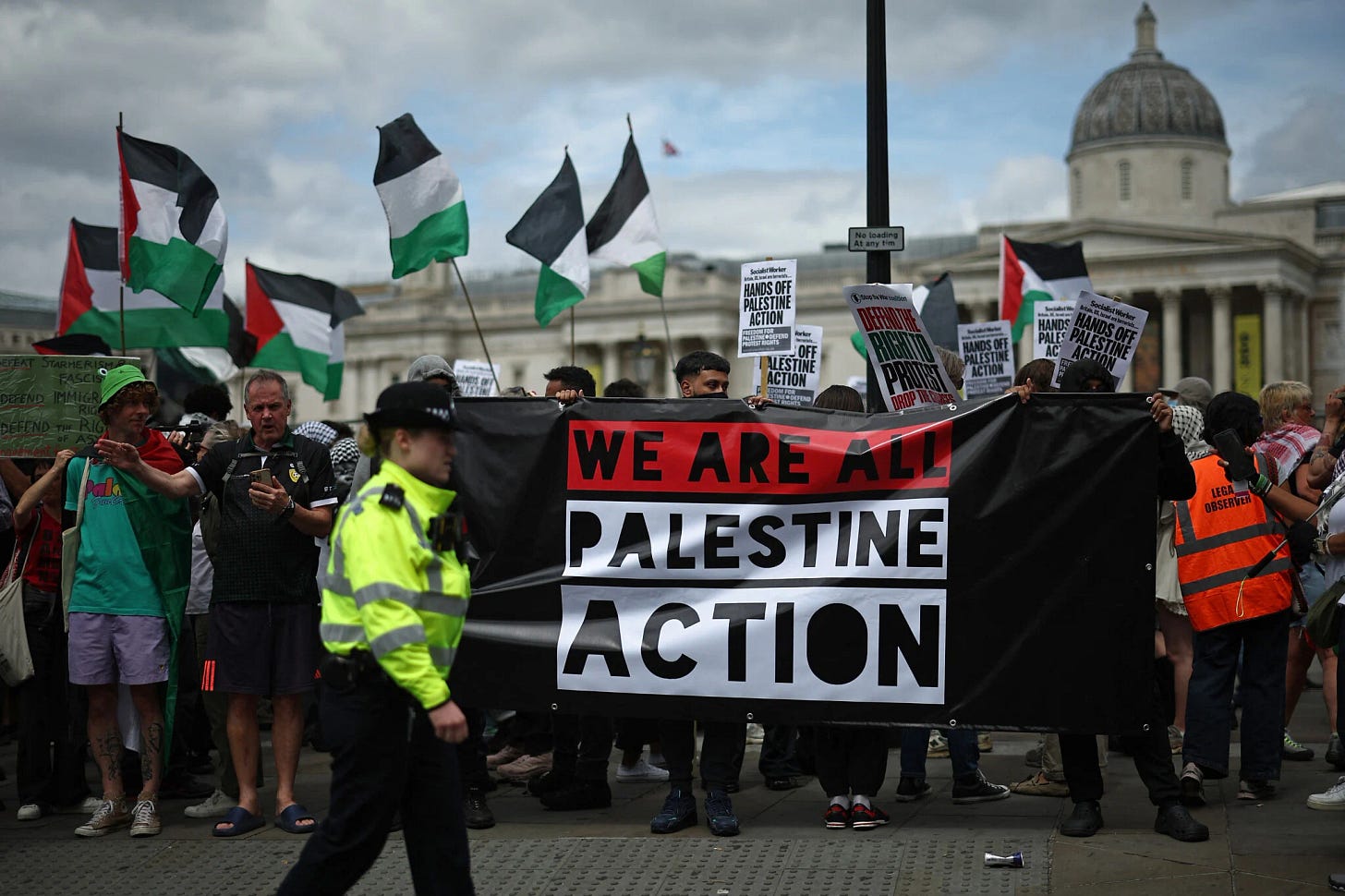UK Declares Palestine Action a Terrorist Organisation
These sweeping powers are being deployed not to prevent violence, but to suppress legitimate political protest and resistance to war profiteering,” said one legal observer.
United Kingdom, PUREWILAYAH.COM - On Wednesday, British lawmakers voted to designate Palestine Action, a prominent pro-Palestinian direct action group, as a terrorist organisation.
The controversial move—triggered by the group’s protest at a Royal Air Force base last month—has ignited fierce debate over the limits of civil resistance, property damage, and the right to dissent in a democratic society.
Palestine Action had claimed responsibility for damaging two military aircraft at RAF Brize Norton in protest of the UK’s arms ties to Israel. It was only the latest in a series of targeted actions against companies connected to the Israeli military-industrial complex—most notably Elbit Systems, the Israeli weapons manufacturer the group calls its “main target.”
According to the UK’s Labour-led government, Palestine Action has caused millions of pounds in damages over the years—at a Thales site in 2022, an Elbit Systems factory in 2023, and the recent RAF base incident. Home Secretary Yvette Cooper defended the decision, stating:
“There is no place for violence or criminal damage in legitimate protest. We must take a zero-tolerance approach in the interests of national security.”
Under the UK’s Terrorism Act, the upcoming proscription—once approved by the House of Lords—would make it a criminal offence to support or belong to Palestine Action. The group would join the same legal category as ISIS and al-Qaeda.
A Chilling Message to Civil Society
Palestine Action has denounced the decision as an “abuse of power” and vowed to challenge it in court. An urgent High Court hearing has been scheduled for Friday, where co-founder Huda Ammori will seek an interim injunction to freeze the order before it takes effect.
Civil liberties organisations, including Liberty, Amnesty International, and the European Legal Support Center, have submitted witness statements in support of the group. They argue that equating political direct action—even when disruptive—with terrorism is a dangerous escalation.
Notably, the government’s consultation process included Israeli officials and arms manufacturers—but excluded these key civil society voices.
Ammori’s legal team has argued that the government acted unlawfully by failing to give notice or explanation prior to the designation.
“These sweeping powers are being deployed not to prevent violence, but to suppress legitimate political protest and resistance to war profiteering,” said one legal observer.
Still on the Ground, Still Disrupting
Despite legal threats, Palestine Action has not paused its operations. On Tuesday, the group occupied a subcontractor’s rooftop in Suffolk and blocked the entrance to an Elbit site in Bristol. Their actions come amid a larger push to spotlight British complicity in what they describe as Israeli war crimes in Gaza.
The government announcement came just three days after the RAF protest and five arrests. Critics say the timing makes clear that political pressure, not national security, is driving the crackdown.
Adding further controversy, Parliament voted on the measure as part of a package that also included two far-right groups—the neo-Nazi Maniacs Murder Cult and the Russian Imperial Movement. Lawmakers were not allowed to vote on Palestine Action separately.
UN Warning: Don’t Criminalise Protest
UN experts appointed by the Human Rights Council issued a rare rebuke to the UK, warning that labeling non-lethal acts of property damage as terrorism could violate international norms and undermine democratic protest rights. They called on London to reconsider, noting the dangerous precedent such a decision could set globally.
What Comes Next?
The High Court hearing on Friday will determine whether the ban can be temporarily halted. But the broader battle—over how far states can go in silencing protest, and who gets to define "terrorism"—is just beginning.
If Palestine Action is outlawed, the consequences for UK protest culture may be profound. It’s a moment that asks not only what we believe about civil disobedience—but who is allowed to dissent, and who decides when dissent becomes a threat. (PW)


